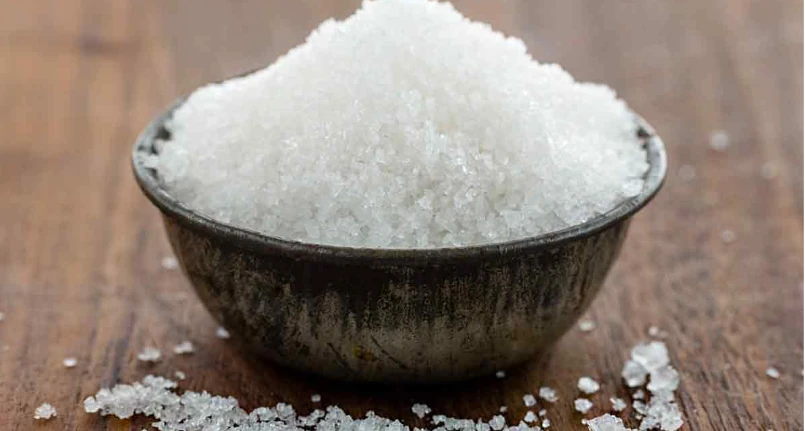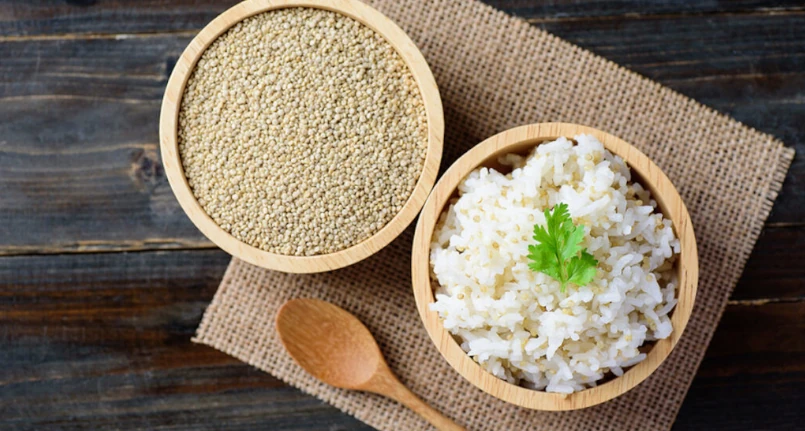Protein and Breakfast
Proteins are macronutrients with mixed function, i.e. plastic , energetic, bioregulatory, hormonal, etc. Their contribution in the diet is very important since a part of the “building blocks” ( amino acids ) that constitute them is of the “essential” type; it means that the body is not able to produce them autonomously in sufficient quantities and that it must therefore obtain them from the diet.
Basically, the secret to having good protein absorption is to eat more meals but in smaller portions; in this case, certain foods in single portions to be placed at breakfast and in secondary meals become particularly convenient . So, to give a clear example, YES to yogurt for breakfast and NO to WHOLE Florentine steak for dinner.
Importance of Breakfast
Breakfast is one of the 5-6 ordinary meals of the day. It is usually called “the most important”, even though most people are unable to justify the real reason. From a “quantitative” point of view, breakfast provides (or rather, should provide) about 15% of total daily calories . Conversely, the other two main meals (that is, lunch and dinner), should supply approximately 40 and 35% of the energy; in parallel, secondary meals (2-3 snacks) only contribute the remaining 10% (up to 25%) of calories overall. So, if mathematics is not an opinion, respecting the “caloric quantity” criterion, breakfast seems much more like a secondary meal than a main one. However, its importance lies in a metabolic and non-mathematical mechanism.
Breakfast is intended to refresh the body after a fast that lasts from the end of the previous dinner. In principle, assuming that the last meal of the day is eaten between 19:30 and 20:30, and that the next breakfast takes place between 7:30 and 8:30, this time frame should correspond to about 11-13 hours. It goes without saying that, by logic, it would be appropriate for breakfast to provide much more than 15% of the daily calories (remember the saying: ” have a breakfast like a king, a lunch like a prince and a dinner like a pauper “?); also why, scrutinizing the circadian cycles, insulin secretion and its peripheral uptake are greater at these times of the day than in the afternoon or night. Nonetheless, in the morning (perhaps due to nervousness or time constraints), the average person does not easily tolerate large portions of food and prefers to consume them at lunch or dinner. Furthermore, it should be remembered that night fasting takes place in conditions of deliberately limited energy expenditure (essentially, it corresponds to the basal metabolic rate ); therefore, nocturnal abstinence is certainly not comparable to morning, afternoon or evening abstinence, periods in which the body is more active and expensive. It should also be specified that, since it is the first meal, reducing its size or eliminating it completely runs the risk of accumulating appetite (which turns into HUNGER ) and to exceed the portions in subsequent meals; in practice, by not assuming this energy at breakfast, this is then added to lunch or dinner, increasing the adipose deposit due to excess calories.
These are the reasons which justify the importance of the morning meal and which, in parallel, limit its extent to a modest 15% of the total.
Protein Foods for Breakfast
Once we understand the importance of breakfast, let’s try to better understand HOW it should be structured.
We have already mentioned insulin; this hormone is the main anabolic mediator of the body but, by facilitating the entry of certain molecules into the tissues, it also becomes responsible for the accumulation of fat. A better ability to metabolise nutrients in the morning also corresponds to a lower tendency to deposit fat , which is why it is customary to concentrate sweeter foods at breakfast rather than in other meals of the day ( sugars are the main nutrients responsible for the secretion insulin ); moreover, remember that the brain works on glucose ( sugar ), therefore carbohydratesthey should never be missing in a morning meal (especially considering the long fast before breakfast).
However, people’s nutritional needs are NOT the same and, especially in certain situations (anticipated in the introduction), breakfast becomes a fundamental moment for reaching the quota of other nutritional compounds such as proteins, but also fibres, vitamins and salts minerals .
In summary, for some people (whom we remember are above all children, the elderly, sportsmen and those suffering from pathologies related to intestinal absorption but not only…) consuming milk and yogurt reasonably in the morning is a habit nothing short of smart. I mention these foods because, in addition to being statistically the most welcome in the first meal, they represent an excellent source of protein, riboflavin ( vit. B2 ), calcium and (in yogurt) probiotics ; moreover, as far as yogurt is concerned, being conveniently distributed in portions of 125 and 150g, it can also be easily consumed outside the city.
Foods rich in proteins are different but, if for some it is not a problem to consume cured meats , eggs, canned tuna or white meat as soon as they wake up, I challenge anyone to regularly eat a plate of roasted shrimps or Venetian-style liver … at 7 :30 in the morning!
Then, if we consider that the only nutritional drawback to the consumption of foods of animal origin is the intake of cholesterol and saturated fats , milk and yoghurt once again prove to be extremely useful. In fact, although it is impossible to completely degrease a slice of meat or deprive an egg yolk of cholesterol , on an industrial level it is instead possible to skim (even very effectively) any type of milk; this, deprived of its lipid component, becomes a food almost totally devoid of molecules that favor the increase of cholesterol in the blood .
It is also necessary to specify that such foods are not globally tolerated; there is a slice of the population which, not keeping intestinal lactase after weaning , becomes intolerant to this sugar . For these people it is practically impossible to consume normal milk, while (thanks to the hydrolysis carried out by the lactic bacteria which reduces the amount of lactose ) they seem to tolerate better (with the due differences related to subjectivity) all fermented products such as yogurt, kefir , Greek or thickened yogurt , buttermilk , etc.
In short, two yogurts with whole grains , honey , fresh fruit and oilseeds represent a tasty breakfast and able to cover the need for proteins (totally absorbable), sugars, fats, water, mineral salts, vitamins and dietary fiber for the most part of the general population.




